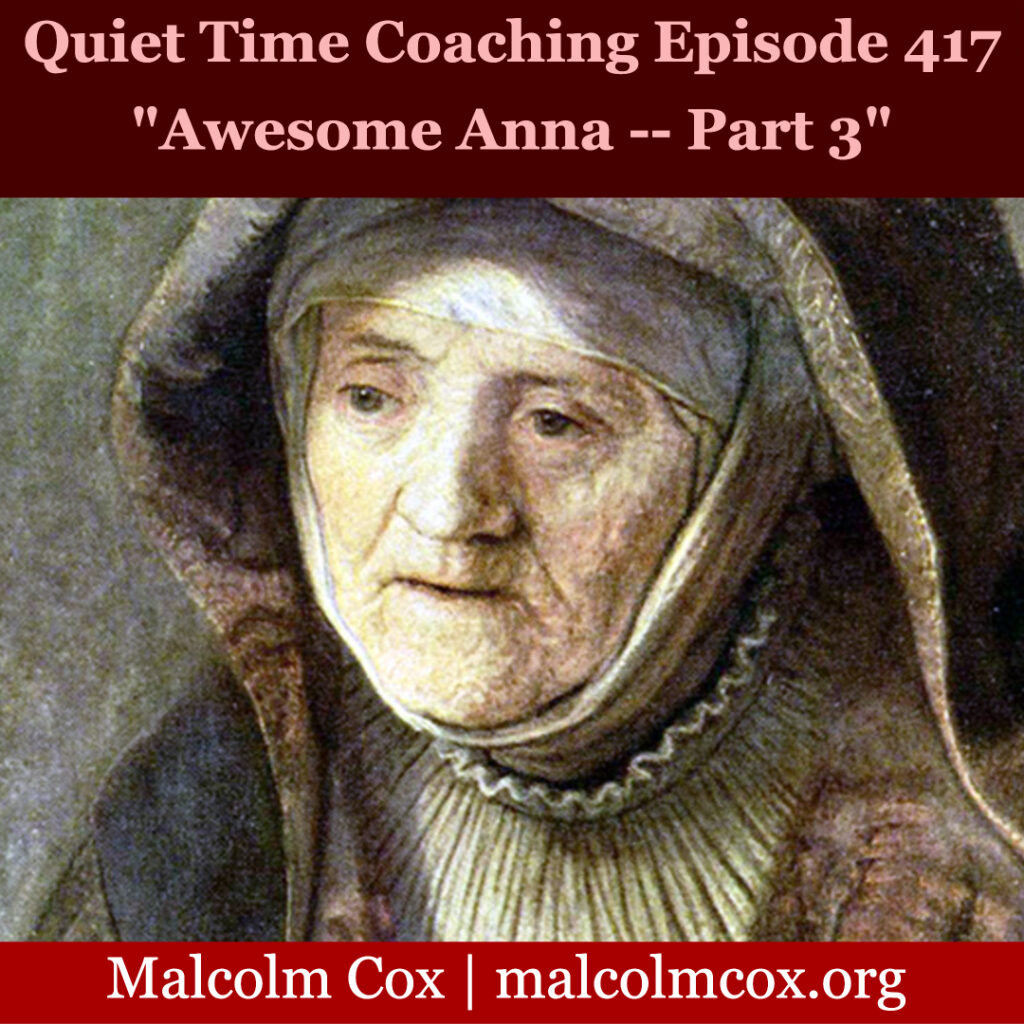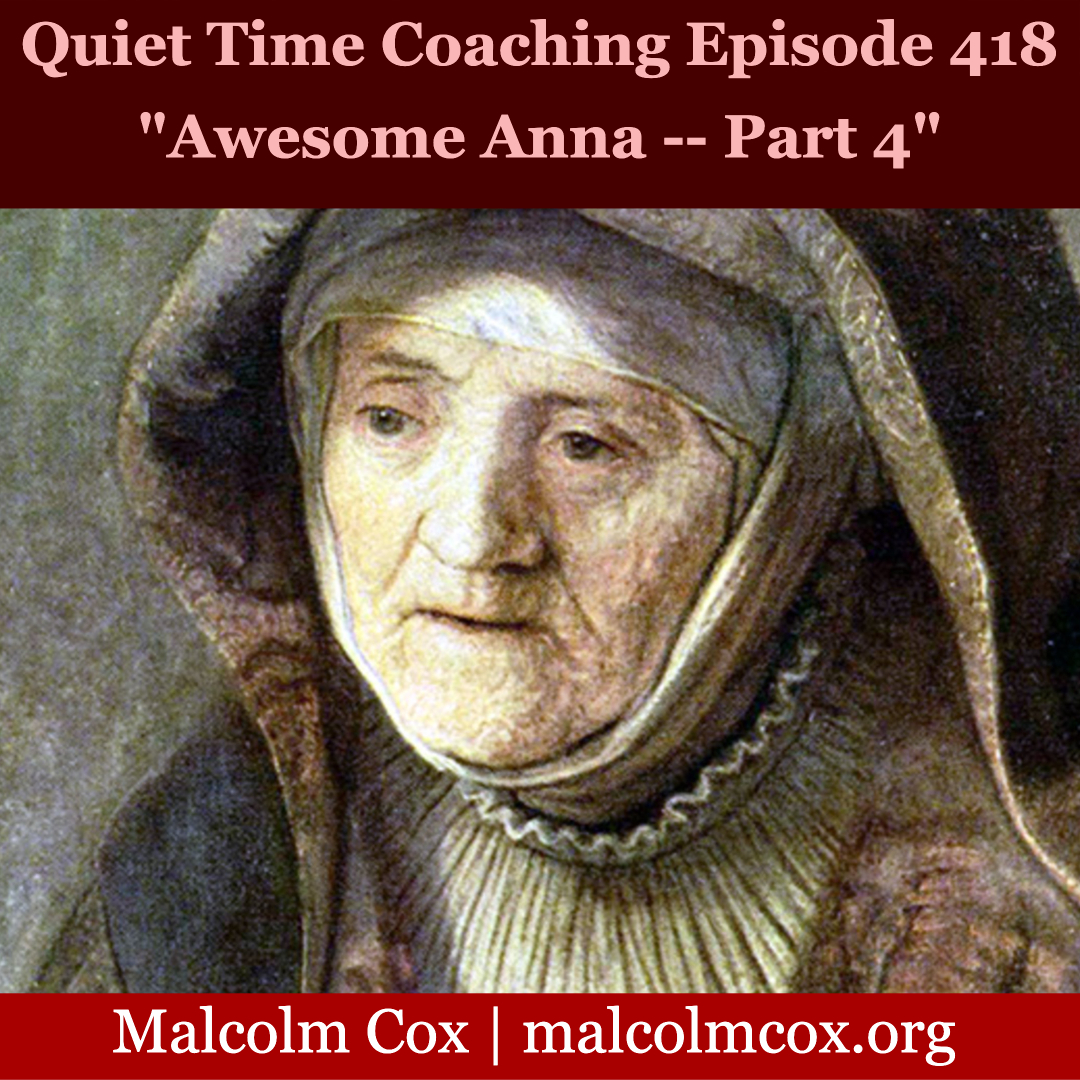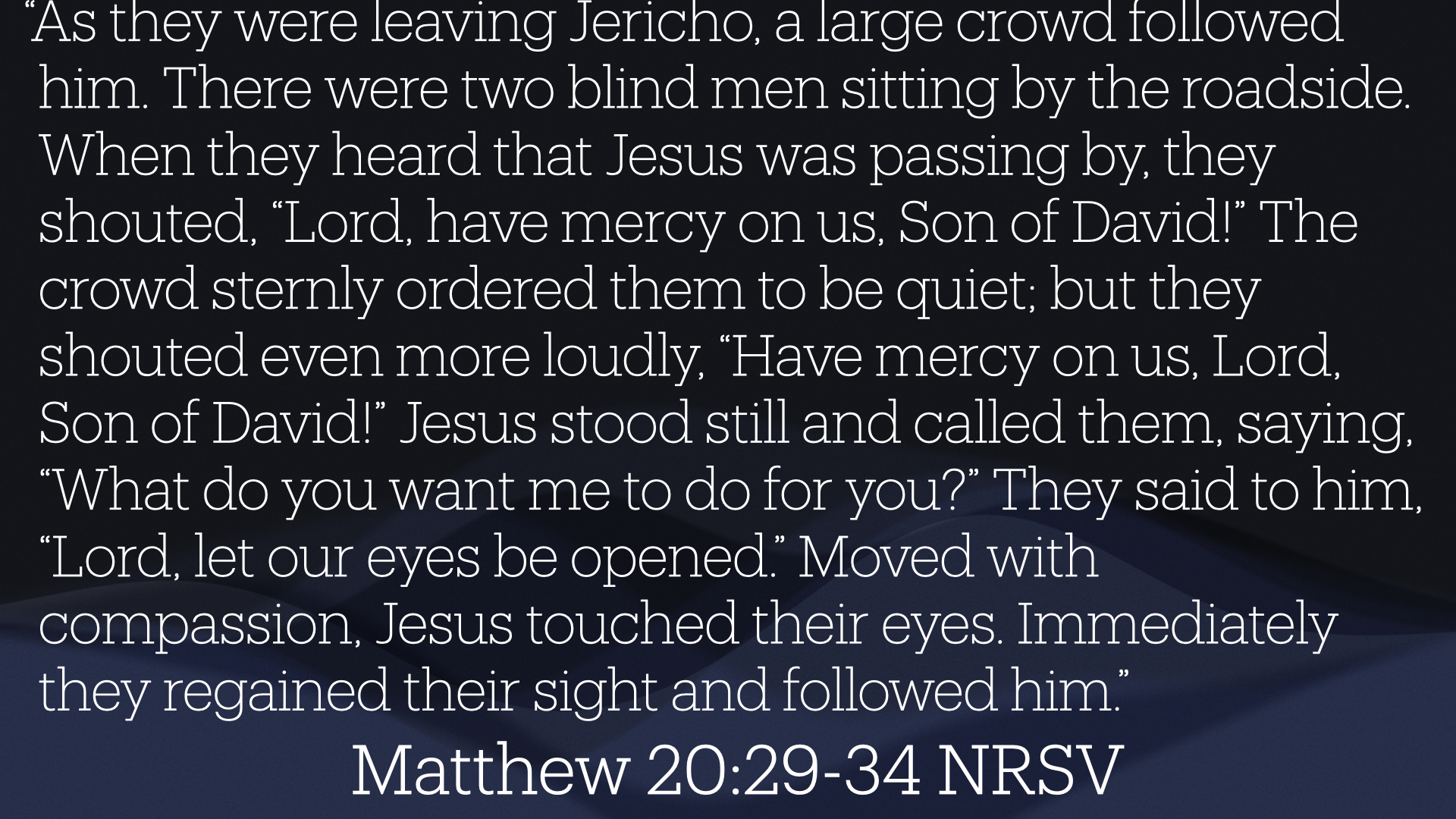
Introduction
Studying Anna for a sermon led me to some unexpected insights about her devotional life. It inspired me to put a multi-episode series together.
The Text
“There was also a prophet, Anna, the daughter of Penuel, of the tribe of Asher. She was very old; she had lived with her husband seven years after her marriage, and then was a widow until she was eighty-four. She never left the temple but worshiped night and day, fasting and praying. Coming up to them at that very moment, she gave thanks to God and spoke about the child to all who were looking forward to the redemption of Jerusalem.” (Luke 2:36–38 NIV11)
What do we learn about Anna’s relationship with God?
Her disciplined devotion to God enabled her to recognise when He was a work.
Notice that Anna approaches Jesus and his parents. They are not presented to her. She goes to them. Simeon had been told to expect something special,
“It had been revealed to him by the Holy Spirit that he would not die before he had seen the Lord’s Messiah. Moved by the Spirit, he went into the temple courts. When the parents brought in the child Jesus to do for him what the custom of the Law required,” (Luke 2:26–27 NIV11)
Anna recognises God’s activity without divine intervention (as far as we can tell). She is in tune with God. Despite her age — whether 84 or over 100 (see previous episode) — her disappointments, and vulnerability, she is impressively spiritually attuned to God’s activity. Where does this spiritual insight come from? It seems reasonable to attribute it to her spiritual disciplines. She is always at the temple fasting and praying.
An article by Robin Branch puts it this way,
‘…her lifestyle evidently invigorates her, for she is mobile, articulate, alert, spiritually savvy and unselfish….her ability to walk around the Temple indicates her fitness and that her eyesight and hearing are intact; her designation as a prophetess indicates her spiritual acuity; her talk of the child to those interested in the redemption of Jerusalem indicates her deep connection with a likeminded community.’ *
Anna was spiritually centred. She centred her life on the temple. The location is not the key here, but rather the devotion to a lifestyle of worship. We all need a spiritually centred life. A ‘with God life’, as Dallas Willard would put it. Anna’s resolve to prioritise this led her to be in the right place at the right time to recognise the hand of God at work, to join in celebrating that work and to leave us with an inspiring example of devotion to God.
Applications
- What helps you stay ‘centred’ with God?
- Which spiritual disciplines are you practicing at the moment and how are they helping you recognise God’s hand?
Conclusion
If spiritual disciplines are a new concept to you, search my website for resources. I can also recommend the Renovare institute (https://renovare.org) as a helpful resource. If you practice spiritual disciplines, are the ones you are employing working for you? Do you need to persevere, or try something new?
Please add your comments on this week’s topic. We learn best when we learn in community.
Do you have a question about teaching the Bible? Is it theological, technical, or practical? Send me your questions or suggestions. Here’s the email: malcolm@malcolmcox.org.
If you’d like a copy of my free eBook on spiritual disciplines, “How God grows His people”, sign up at my website: http://www.malcolmcox.org.
Please pass the link on, subscribe, and leave a review.
“Worship the LORD with gladness; come before him with joyful songs.” (Psalms 100:2 NIV11)
God bless, Malcolm
- https://www.biblicalarchaeology.org/daily/people-cultures-in-the-bible/people-in-the-bible/anna-in-the-bible/ Robin Branch



